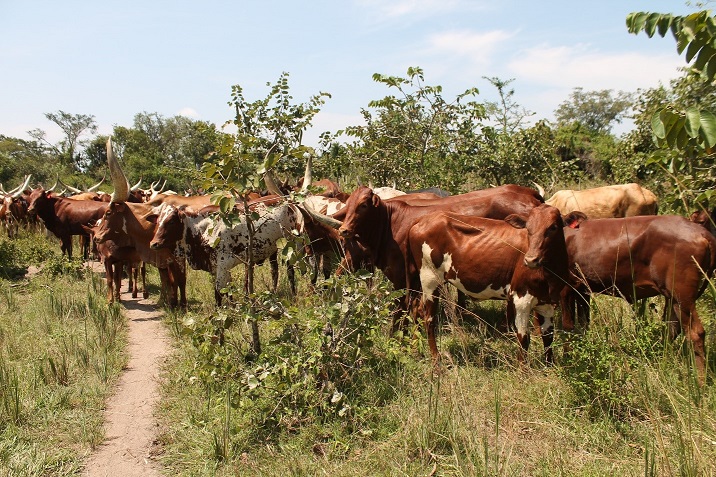The inter-ministerial committee set up to investigate the number of pastoralists in Northern Uganda has identified at least 898 cattle farms.
On May 19th, President Yoweri Museveni issued an executive order number 3 exercised under Article 99 (2) of the constitution, aimed at evicting the pastoralists from northern Uganda by June 2023. However, he was advised to postpone the implementation of the Executive Order for the eviction of the cattle keepers until September 30 pending their verification.
The development led to the formation of an inter-ministerial committee led by Prof. Jack Nyeko Pen Mogi. The committee members include chairpersons of parliamentary committees of Karamoja, Sebei, Teso, Lango, and Acholi, leading the investigations as well as technical leadership involved.
Grace Freedom Kwiyocwiny, the State Minister for Northern Uganda, reveals that following the exercise, they have learned that there are 898 cattle farms registered under the Northern Uganda Cattle Farmers’ Association.
Kwiyocwiny however says these are not the only farms because they got information from the registered cattle farms that some are hiding in ranches such as Aswa in Acholi, Maruzi in Lango, and Ajayi in Westnile.
Kwiyocwiny says there are between 100-800 herds of cattle on each of the farms, being shepherded by between five and six. This implies that there are a minimum of 89,000 animals on the farms and 5,300 cattle keepers.
Kwiyocwiny advised the Acholi who have animals to learn from the pastoralists and improve their livelihood because the cash crops that the Acholi relied on such as cotton is no longer doing well.
She notes that the cattle economy is booming and during this exercise, they learned that at least 150 motorcycles cross Elegu from northern Uganda daily to take milk to South Sudan.
This report comes two months after the suspension of the executive order.
David Pulkol who is in charge of strategic advisory support in the exercise, says the investigation of the pastoralists was necessary because they needed to have clear data and thorough guidelines on how to implement the executive order.
Pulkol notes that during the exercise, they have received reports of notorious pastoralists who are arrogant and have guns, and don’t pay compensation for losses caused by their animals.
The committee also tasked the pastoralists to provide proof of transactions or agreements between them and the land owners, as well as proof of involvement of leaders in the land transaction, so that no one is chased unfairly.
Pulkol says the Minister for Northern Uganda, together with the members of the inter-ministerial team will write their report about their findings to be tabled before the cabinet within the month of September, before the government issues clear guidelines to implement the executive order. URN

